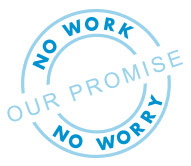BEING PAID UNDER THE TABLE CAN DELAY RETIREMENT
When a nanny, housekeeper or senior caregiver is paid legally, they are entitled to certain benefits that are earned through the payroll and tax process. But because many household employees are younger in age, sometimes they don’t realize how important these benefits are. In this edition of The Legal Review, the Hanson family finds themselves in a big mess after their long-time nanny decides she’s ready to stop working.
The Situation
The Hanson family lives in upstate New York and has employed a nanny named Bonnie for the past four years. Unlike most nannies, Bonnie was 60 years old when the Hansons hired her, but had a wealth of experience with childcare as she was a stay-at-home mom for most of her life. Before working for the Hansons, the only job Bonnie ever had was working in a local retail shop for 8 years. With her upbeat personality and her love for children, she was a great fit for the Hansons after their first child was born and they were ecstatic to hear she would take on the challenge of a second child two years later.

The Mistake
When the Hansons first hired Bonnie, they asked their neighbors how they handled hiring a nanny for their kids. The Hanson’s neighbors explained they paid their nanny like they would a babysitter and gave her cash at the end of each week. Bonnie agreed with this arrangement and she was paid in cash every Friday for four years.
The Law
When a family hires a household employee to work in their home, they are required to withhold Social Security & Medicare (FICA) taxes from their employee’s pay each payperiod. Federal and state income taxes – while not explicitly required to be withheld – should be deducted as well to ensure the employee does not get stuck with a large tax bill during tax season. The family is also required to pay a matching portion of FICA taxes, as well as federal and state unemployment insurance taxes. Some states, like New York, also require additional taxes to either be withheld from an employee or paid by an employer. Please visit our state-specific pages for details on the taxes in your state.At the end of the year, the family is required to prepare a W-2 for their employee so they can file their personal income tax return. The family is also required to file Form W-2 Copy A and Form W-3 with the Social Security Administration and prepare a Schedule H to attach to their personal income tax return.
The Mess
Bonnie was confused and asked the CPA how she could get credit for the last four years of her working career so she could retire at the end of the year. The CPA explained that the Hanson family would need to catch up on four years’ worth of payroll reporting and tax returns in order for the SSA to approve Social Security benefits for her. With this information in hand, Bonnie approached the Hansons, who were understandably embarrassed and guilt-ridden at the thought of their long-time nanny not being able to retire on her schedule.
The Outcome
The Hansons called Breedlove & Associates the next day and we were able to get them caught up on their employer taxes. We set them up as household employers with the IRS and the state of New York, gathered the four years’ worth of payroll information for Bonnie, filed the late tax returns, and best of all, sent tax information for the family and Bonnie to the Social Security Administration so Bonnie could get the working credits she needed for retirement. The family unfortunately incurred thousands of dollars in back tax payments and interest, but we were able to get the state of New York to waive the majority of the penalties they assessed. Bonnie will turn 65 in November and she’s now set up to retire just in time for the holiday season.
How the Whole Thing Could Have Been Avoided


Built by household employers exclusively for household employers, Breedlove & Associates provides a no-work, no-worry solution to paydays, tax time and all points in between. If you have any questions about household employment or want to take advantage of our complimentary New Employer Orientation, just give us a call. We’re here to help.
Beth Weise

